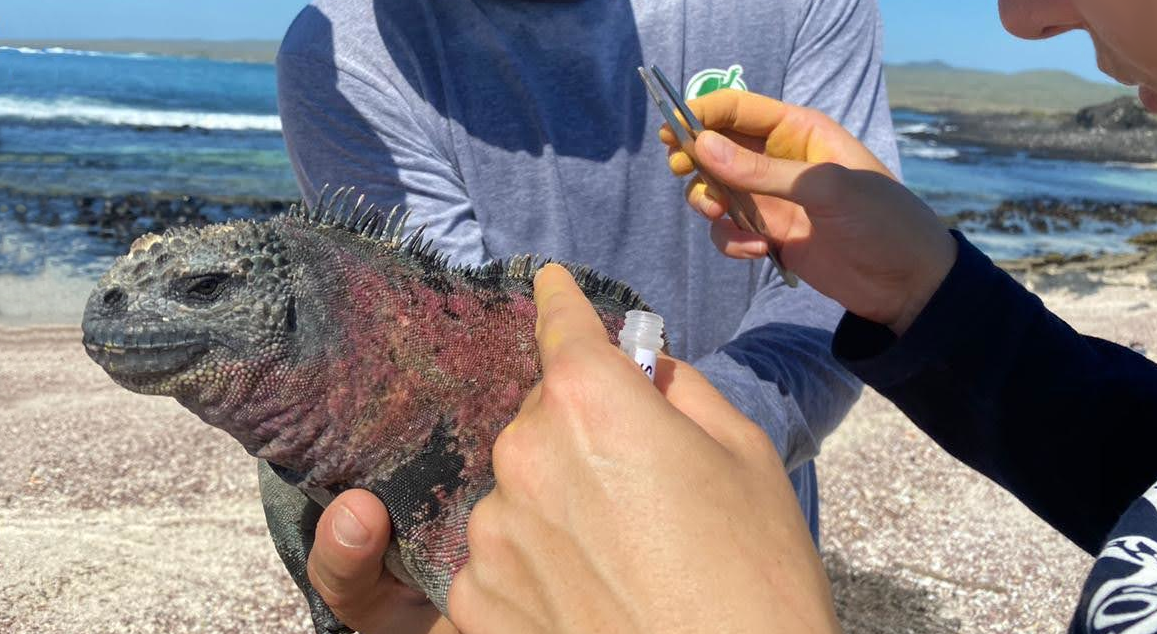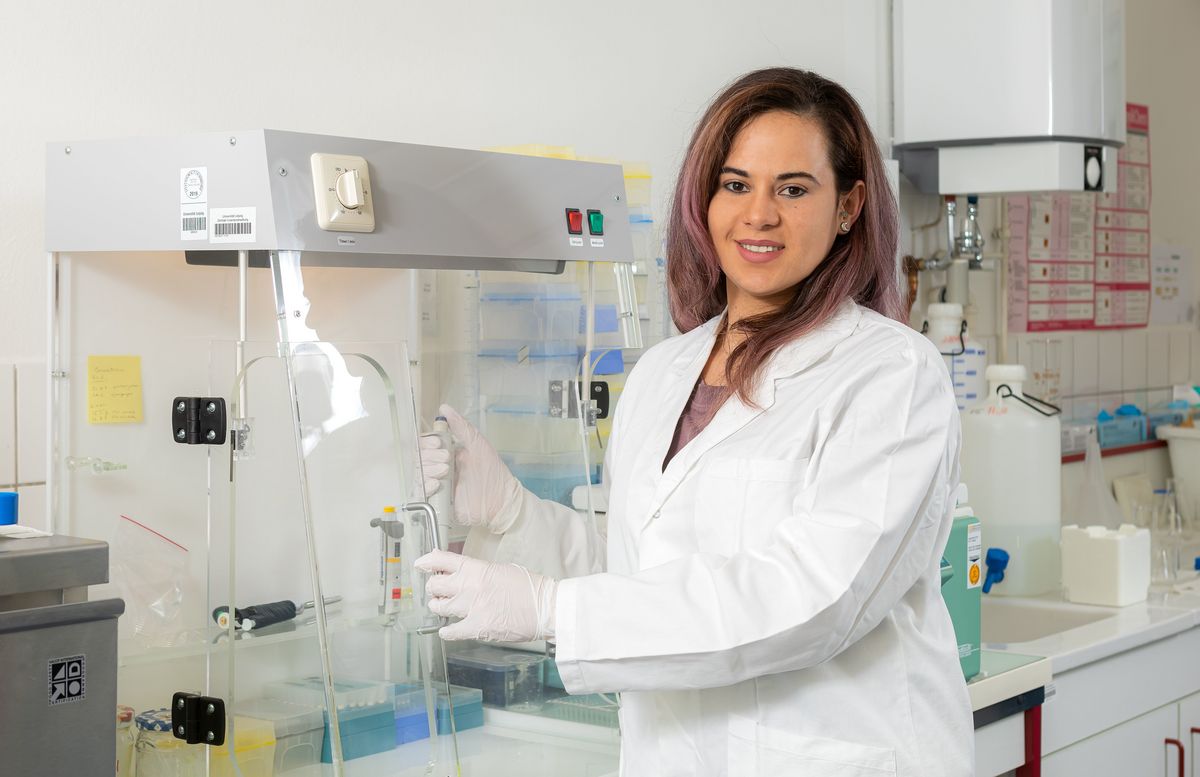Foraging Ecology of the Marine Iguanas (Amblyrhynchus cristatus) of the Galápagos Islands.
The marine iguana (Amblyrhynchus cristatus) is an endemic species of the Galápagos Islands and the only lizard that has adapted to forage on marine macroalgae, which offers novel insights into nutritional adaptations and evolutionary processes. Eleven distinct subspecies of marine iguanas have been distinguished across the archipelago and molecular analysis have shown an unique process of within-island speciation in San Cristobal Island, with the presence of two sub-species (A. c. mertensi and A. c. godzilla).
My research consists on diet analyses to find out if there are differences in foraging preferences within subspecies, as these differences may lead to ecological segregation and ultimately speciation. In order to identify the algae taken up by marine iguanas, I extract DNA present in marine iguanas´ faecal samples and use a DNA metabarcoding method to detect and identify the food components, more specifically green, red and brown macroalgae.
In a first stage of the project, it was already observed that the two genetically differentiated subspecies of San Cristobal also differ with respect to consumed macroalgal taxa and that there is a clear preference towards red algae as food item. Also, some of the taxa of macroalgae present in the areas where marine iguanas forage have been identified by means of a DNA barcoding approach.
The study will be extended to the foraging ecology of marine iguanas in the other islands of the whole archipelago to look for insights to a potential concurring ecological divergence between subspecies. The project also aims to obtain a representative sample of the algae species present in each location to have a general view of patterns of regional variation in the distribution of macroalgae.
Publications
DNA metabarcoding reveals fine scale geographical differences of consumed algae in the Galápagos marine iguanas (Amblyrhynchus cristatus)
(due to be published soon).

